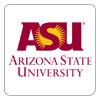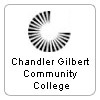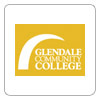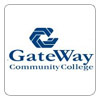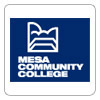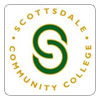Project Pathways targets mathematics and science learning and achievement in grades 9-12. The project will produce a research-based and tested model to support secondary mathematics and science teachers. Core partners include four school districts (Chandler, Mesa, Tempe, and Tolleson) and the Center for Research on Education in Science, Mathematics, Engineering, and Technology (CRESMET) at Arizona State University (ASU). The Maricopa Community College District and Intel are collaborators with ASU in delivering the project's research-based services and products to these districts. The demographics of the partner school districts mirror those of Arizona, where 45% of students are persons of color and the Hispanic population is expanding rapidly.
Pathways will produce tools and knowledge to guide secondary mathematics and science teachers in promoting conceptual learning and STEM behaviors that the literature deems essential for continued STEM learning and course-taking. These key behaviors include competence and flexibility in scientific inquiry, mathematical problem solving, and engineering design.
Project Contributions
Decentering: A construct to analyze and explain teacher actions as they relate to student thinking
"Mathematics educators and writers of mathematics education policy documents continue to emphasize the importance of teachers focusing on and using student thinking to inform their instructional decisions and interactions with…
"Mathematics educators and writers of mathematics education policy documents continue to emphasize the importance of teachers focusing on and using student thinking to inform their instructional decisions and interactions with…
Concepts And Reasoning For Calculus Learning
Professor Marilyn Carlson, from The Pathways Project at Arizona State University, discusses a programme that has proven effective in improving teaching of precalculus concepts, as well as students' chances of…
Professor Marilyn Carlson, from The Pathways Project at Arizona State University, discusses a programme that has proven effective in improving teaching of precalculus concepts, as well as students' chances of…
An Adaptive Model for Supporting Shifts in Secondary Precalculus Instruction and Student Learning
"The Pathways Precalculus Professional Development Model (P3DM) includes focused workshops for teachers, student curriculum and instructor support materials. Our research to scale Pathways to all teachers within a school and…
"The Pathways Precalculus Professional Development Model (P3DM) includes focused workshops for teachers, student curriculum and instructor support materials. Our research to scale Pathways to all teachers within a school and…
Sense of Place in the Practice and Assessment of Place-based Science Teaching
"We teach earth, ecological, and environmental sciences in and about places imbued with meaning by human experience. Scientific understanding is but one of the many types of meanings that can…
"We teach earth, ecological, and environmental sciences in and about places imbued with meaning by human experience. Scientific understanding is but one of the many types of meanings that can…
Key Variables for Establishing and Sustaining Highly Effective Professional Learning Communities
This session describes attributes of Pathways Professional Learning Communities (PLC's) that have emerged in research projects to be effective for shifting mathematics teachers' instruction. These shifts have led to greater…
This session describes attributes of Pathways Professional Learning Communities (PLC's) that have emerged in research projects to be effective for shifting mathematics teachers' instruction. These shifts have led to greater…
Using Research-based Curriculum to Support Shifts in Teachers' Key Pedagogical Understandings
"Research findings from the first four years of a project (Project Pathways) focused on improving secondary mathematics and science instruction revealed that teachers' attempts to promote conceptual learning were not…
"Research findings from the first four years of a project (Project Pathways) focused on improving secondary mathematics and science instruction revealed that teachers' attempts to promote conceptual learning were not…
Interaction Between Teachers' Questions and Student Discourse
"This report discusses findings from an ongoing Project Pathways focused on improving secondary mathematics and science instruction. Over the course of the first four years of the project, research findings…
"This report discusses findings from an ongoing Project Pathways focused on improving secondary mathematics and science instruction. Over the course of the first four years of the project, research findings…
Featured Paper Session: Coherence and Change in Teacher Professional Learning Communities
Project Pathways is an ongoing Math and Science Partnership at Arizona State University to implement and research teacher professional development in six large urban school districts. One component of Project…
Project Pathways is an ongoing Math and Science Partnership at Arizona State University to implement and research teacher professional development in six large urban school districts. One component of Project…
Coherence and Change in Teacher Professional Learning Communities
This paper addresses the following claim(s): "Each PLC has unique dynamics and factors influencing their motivation, productivity, and inquirential engagement. In this presentation, we report results from data analysis on…
This paper addresses the following claim(s): "Each PLC has unique dynamics and factors influencing their motivation, productivity, and inquirential engagement. In this presentation, we report results from data analysis on…
Transforming the Professional Development Culture and Quality of Mathematics and Science Instruction within a Secondary School
This paper addresses the following claim(s): "The school culture, school principal and the curriculum used in secondary mathematics and science schools are primary variables that affect secondary mathematics and science…
This paper addresses the following claim(s): "The school culture, school principal and the curriculum used in secondary mathematics and science schools are primary variables that affect secondary mathematics and science…
The Design of Tasks in Support of Teachers' Development of Coherent Mathematical Meanings
Posted by: Christine Baum . We examine the role of tasks that have the intended effect of teachers re-conceiving the mathematics they teach as comprising a coherent body of meaningful ideas. We ground our discussion…
Posted by: Christine Baum . We examine the role of tasks that have the intended effect of teachers re-conceiving the mathematics they teach as comprising a coherent body of meaningful ideas. We ground our discussion…
Documenting the Emergence of "Speaking with Meaning" as a Sociomathematical Norm in Professional Learning Community Discourse
Posted by: Christine Baum . The purpose of this paper is to describe the sociomathematical norm of speaking with meaning. Speaking with meaning reflects the type of mathematical communication expected when a group of individuals…
Posted by: Christine Baum . The purpose of this paper is to describe the sociomathematical norm of speaking with meaning. Speaking with meaning reflects the type of mathematical communication expected when a group of individuals…
Cognitive and Affective Outcomes of a Southwest Place-based Approach to Teaching Introductory Geoscience
Posted by: Christine Baum . The physical and cultural landscapes of the Southwest United States epitomize places, which are localities imbued with meaning by human experience. Sense of place comprises the meanings of and emotional…
Posted by: Christine Baum . The physical and cultural landscapes of the Southwest United States epitomize places, which are localities imbued with meaning by human experience. Sense of place comprises the meanings of and emotional…
Bilingual Language Supports in Online Science Inquiry Environments
Posted by: Christine Baum . Research over the past fifteen years has investigated and developed online science inquiry environments to support students engaging in authentic scientific inquiry practices. This research has focused on developing activity…
Posted by: Christine Baum . Research over the past fifteen years has investigated and developed online science inquiry environments to support students engaging in authentic scientific inquiry practices. This research has focused on developing activity…
The Role of Quantitative Reasoning in Solving Applied Precalculus Problems
Posted by: Christine Baum . In response to the continued difficulty of students constructing and modeling function relationships, we conducted an investigation of undergraduate precalculus students' developing quantitative and covariational reasoning abilities. Specifically, this investigation…
Posted by: Christine Baum . In response to the continued difficulty of students constructing and modeling function relationships, we conducted an investigation of undergraduate precalculus students' developing quantitative and covariational reasoning abilities. Specifically, this investigation…
Connecting Science and Mathematics: The Nature of Proof and Disproof in Science and Mathematics
Posted by: Christine Baum . Disagreements exist among textbook authors, curriculum developers, and even among science and mathematics educators/researchers regarding the meanings and roles of several key nature-of-science (NOS) and nature-of-mathematics (NOM) terms such as…
Posted by: Christine Baum . Disagreements exist among textbook authors, curriculum developers, and even among science and mathematics educators/researchers regarding the meanings and roles of several key nature-of-science (NOS) and nature-of-mathematics (NOM) terms such as…
Layers of Abstraction: Theory and Design for the Instruction of Limit Concepts
Posted by: Christine Baum . Imagine asking a first-semester calculus student to explain the definition of the derivative using the epsilon-delta definition of a limit. Given the difficulty of each of these concepts for students…
Posted by: Christine Baum . Imagine asking a first-semester calculus student to explain the definition of the derivative using the epsilon-delta definition of a limit. Given the difficulty of each of these concepts for students…
Foundational Reasoning Abilities That Promote Coherence in Students' Function Understanding
Posted by: Christine Baum . This article provides an overview of essential processes involved in knowing and learning the function concept. We have included discussions of the reasoning abilities involved in understanding and using functions,…
Posted by: Christine Baum . This article provides an overview of essential processes involved in knowing and learning the function concept. We have included discussions of the reasoning abilities involved in understanding and using functions,…
An Investigation Into Precalculus Students' Conceptions of Angle Measure
Posted by: Christine Baum . What follows in this report is a description of an approach to trigonometry intended to promote coherent student trigonometric understandings by developing foundational understandings of angle measure. This report also…
Posted by: Christine Baum . What follows in this report is a description of an approach to trigonometry intended to promote coherent student trigonometric understandings by developing foundational understandings of angle measure. This report also…
The Role of the Facilitator in Promoting Meaningful Discourse Among Professional Learning Communities of Secondary Mathematics and Science Teachers
This report describes the construct of decentering and its influence on the discourse of a professional learning community (PLC) of secondary mathematics teachers...
This report describes the construct of decentering and its influence on the discourse of a professional learning community (PLC) of secondary mathematics teachers...
How Old is The Earth? An Exploration of Geologic Time
"Geologic time is fundamental to the study of the Earth and life sciences, but it is an abstract and difficult concept for students to master. We predict that placebased inquiry,...
"Geologic time is fundamental to the study of the Earth and life sciences, but it is an abstract and difficult concept for students to master. We predict that placebased inquiry,...
Assessing Mathematics Conceptual Knowledge and Teacher Beliefs in Secondary Mathematics
This session provided an overview of two research-based assessment tools. The first, the Precalculus Concept Assessment (PCA), has been used to assess both students' and teachers' understanding of function,...
This session provided an overview of two research-based assessment tools. The first, the Precalculus Concept Assessment (PCA), has been used to assess both students' and teachers' understanding of function,...






